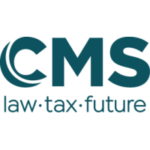-
Does your jurisdiction have a class action or collective redress mechanism? If so, please describe the mechanism and outline the principal sources of law and regulation and its overarching impact on the conduct of class actions in your jurisdiction.
Yes, in Poland, we have had a collective redress mechanism since 19th July 2010, when the Act on Pursuing Claims in Group Proceedings of 17th December 2009 (Ustawa o dochodzeniu roszczeń w postępowaniu grupowym), published in Journal of Laws (Dziennik Ustaw) of 2010, no. 7, item 44 (hereinafter simply: “the Act”) came into force. Before the Act came into force, collective litigation (class action or collective redress) was not known in the Polish law system.
The Act was amended four times. First, by the Act of 7th April 2017 Amending Certain Acts in Order to Facilitate the Recovery of Claims (Journal of Laws of 2017 no. 933 of 12th May 2017; hereinafter: “the 2017 Amendment”). Second minor amendment was introduced by the Act of 4th July 2019 amending the Code of Civil Procedure (henceforth: “CCP”; Journal of Laws of 2019 no.1469 of 6th August 2019). The third amendment was made pursuant to the Act of 1st December 2022 amending the Act on the consideration of complaints by financial market entities and on the Financial Ombudsman and certain other acts (Journal of Laws of 2022 no. 2640 of 15th December 2022, in force since 16th March 2023; hereinafter: “the 2023 Amendment”). The fourth amendment, implementing the Representative Actions Directive (EU) 2020/1828, was adopted by the Act of 24th July 2024 amending the Collective Actions Act and certain other acts and has been in force since 29th August 2024 (Journal of Laws of 2024 no. 1237, dated 14th August 2024; hereinafter: “the 2024 Amendment”). The procedure for obtaining an entry in the register by consumer organizations to be the qualified entity and monitoring of current activities is regulated by the new provisions of the act of 16th February 2007 on the protection of competition and consumers (Journal of Laws of 2024, item 594 – art. 46a et seq.).
Group/class proceedings are civil court proceedings dedicated to the joint consideration of many (at least 10) claims. In Poland, class proceedings are shaped on the opt-in model. Class proceedings are only admissible in those civil or commercial cases in which claims of the same type are based on the same or similar factual basis (or legal basis but only in a narrow scope). The initiation of group/class proceedings does not exclude the possibility of pursuing claims by individuals who did not join the group or who withdrew from it.
A specific active legitimacy is characteristic for group proceedings (see point 10. From the very beginning, Polish law has allowed the possibility of stipulating a success fee in an agreement between a representative and an attorney (in accordance with Article 5 of the Act, a success fee should not exceed 20% of an amount awarded to a claimant). Since the fourth amendment, the admissibility of financing an qualified entity by third parties has been expressly provided for (third-party funding – TPF or litigation finance; Article 10aa of the Act).
From 29th August 2024, under Polish regulations, we can distinguish classic group proceedings (one that has been operating for over 15 years) and a new type of group proceedings in cases regarding determining the use of practices infringing the general interests of consumers or in cases regarding claims related to the use of practices infringing the general interests of consumers. For the sake of distinction, the new type of group proceedings can be referred to as representative group proceedings or representative actions. Both types of group proceedings are, to some extent, governed by different rules.
A characteristic feature of group proceedings is their phased nature. Before the court proceeds to examine the merits of the case, the first phase determines whether the conditions for examining the case in this mode are met; an appeal may be lodged against the decision on certification. In the second phase, after the announcement of the initiation of proceedings, other persons join the proceedings, and the final composition of the group is determined by a court decision, which is also subject to appeal. Subsequently, the court examines the case as to its merits.
The Act has is of a purely procedural nature. This means that the Act does not contain any regulations that would change the principles of civil liability, including compensation for damages.
-
What is the history of the development of the class actions/collective redress mechanism and its policy basis in your jurisdiction?
The drafting of both the original Act and its most recent, fourth amendment, was accompanied by a lively public debate. The justification for the introduction of group proceedings into the Polish legal system was to facilitate the resolution of multiple similar cases involving different entities in a single proceeding. Group proceedings are designed to facilitate access to the court in situations where the individual pursuit of claims would be less beneficial (profitable) and thus increase the effectiveness of court protection. There are also benefits for the economics of the justice system, as well as the unification of decisions in similar cases. It was assumed that group proceedings would relieve courts of the burden of examining many similar cases from different entities and reduce the costs of the proceedings (e.g., joint evidentiary proceedings).
The first class action (group proceedings) were filed within the initial months following the Act’s entry into force; however, the procedure proved overly complex, or perhaps simply too novel (given its departure from the continental concept of a bilateral trial), which led to considerable uncertainty for legal representatives of the parties, and above all, for the courts. In the early years, certification of a case was difficult to obtain, as the courts applied the admissibility criteria in a highly restrictive manner.
Only about 38% of civil cases in which class proceedings were initiated in the years 2010-2015 were heard on the merits during that period. The year 2015 proved to be a turning point when the Polish Supreme Court issued three rulings concerning the criteria for admitting group proceedings (i.e., certification requirements), followed by the first amendment in 2017. The first amendment to the Act (the 2017 Amendment) resulted in the expansion of the scope of cases heard in group proceedings and the removal of the main barriers to the efficient hearing of cases in these proceedings. In subsequent years, the number of class actions brought before the courts stabilised at approximately 30 cases per year. Class (group) proceedings are still primarily criticized for their length. Examination as to the merits is preceded by two preliminary phases, each of which entitles the parties to appeal the court’s decisions, resulting in the court addressing the merits of the dispute at a later stage. The absence of a dedicated procedural pathway for group proceedings in Polish courts contributes to their perception as being excessively time-consuming. In recent years, a decline in the annual number of cases filed can be observed.
-
What is the frequency of class actions brought in your jurisdiction, in terms of number of cases over the years and/or comparison to other types of litigation?
In the light of statistics published by the Ministry of Justice, from 1 July 2010 until to the end of 2024, 371 class actions in civil and commercial cases were filed in Polish courts. It should be borne that in Poland, between 2011 and 2024, there were being initiated from 4.7 million up to 6.8 million proceedings annually! Hence, although the number of class actions initiated over the 14 years of the Act in force may not seem small, it represents a small percentage of proceedings, illustrating, for example, that in 2024, out of 4.7 million proceedings initiated, only 13 were group proceedings.
-
Are there certain courts or types of claims that are most prevalent (for example competition vs commercial litigation generally)?
The Polish legislator – so far – has not decided to transfer group proceedings to selected courts; regional courts have jurisdiction over group proceedings – so potentially, a case can be directed to one of more than forty courts at this level; the largest number of group proceedings is filed in the Regional Court in Warsaw (but in different divisions).
Among the group proceedings heard by the Polish courts, there is a predominance of consumer cases against financial institutions: banks (cases concerning foreign currency loans and the low down payment), insurance companies (a whole series of cases concerning savings insurance policies). A large group of cases involves cases against public entities – the State Treasury and other entities. Currently, in regard of cases against the State Treasury, there are pending 5 proceedings of entrepreneurs groups aggrieved by regulations related to the lockdown during the COVID-19 pandemic. There are proceedings concerning the protection of human rights, discrimination or environmental protection – but not many.
No group proceedings have been initiated so far for data protection as well as for breach of competition law (apart from the Dieselgate case); nor have we seen any product liability cases.
-
What is the definition of 'class action' or 'collective redress' relevant to your jurisdiction?
Class action under the Polish jurisdiction means a court proceeding, in which claims of the same type, having a same or similar factual basis, are pursued by at least 10 people. In the case of representative group proceedings, a common legal basis is sufficient.
-
What are the general 'triggers' for commencement of a class action or collective redress in your jurisdiction from a factual perspective?
In the case of classic group proceedings, the claims covered by the class action must be based on the same or similar factual basis.
The “same” factual basis occurs when claims are derived from one and the same event. On the other hand, the “similar” factual basis can be said to occur when claims of group members are derived from various, many events that are substantially similar to each other. This comes/boils down to the requirement that the same event (e.g. improper action by state authorities) or similar events (credit agreements containing an analogous provisions considered to be so-called abusive clauses) are the basis from which the claims of individual group members arise.
The interpretation of the premise of the “same” / identical factual basis of claims raised the most doubts in practice after the entry into force of the Act. At present, it is well established that the factual basis of a claim should be understood only as the basic set of facts constituting the basis for the creation of a disputed legal relationship and a specific claim. The scope of the factual basis of a claim does not include factual circumstances influencing the amount, scope of the subject matter or maturity of claims. The mechanism of damage occurrence / or other impact on the sphere of legally protected interests should be the same or similar. The factual basis within the meaning of Article 1 Section 1 of the Act consists of the basic, initial set of facts justifying the creation of similar legal relationships.
In the case of representative action – this requirement has been relaxed – and it is sufficient for the claims to be based on the same legal basis. This means that the claims covered by such proceedings may derive from many analogous events.
-
How do class actions or collective redress proceedings typically interact with regulatory enforcement findings? e.g. competition or financial regulators?
As indicated above, although it may be surprising against the background of the trend in other European jurisdictions (such as the UK, the Netherlands, Germany or Portugal), to date, no group proceedings relating to violations of competition law (sensu stricto, i.e. antitrust law) have been initiated in Poland. The only exception may be the proceedings concerning the Dieselgate affair, but due to the way the lawsuit was formulated – it was “bogged down” on formal issues for the first 5 years. Polish courts initially rejected the lawsuit due to lack of jurisdiction – after the guidance from the Supreme Court’s decision referring to the CJEU acquis, the case returned to the substantive examination; thus, there was no opportunity to check how the Polish competition authority would get involved in the proceedings (they could do so within the scope of classic group proceedings concerning infringements of competition law). \In the case of representative group actions in cases concerning infringements of general consumer interests, the Act and the Act of 16th February 2007 on the protection of competition and consumers regulate possible interactions in more detail.
Thus, before initiating proceedings to determine the infringement of general consumer interests, the qualified entity is obliged to notify the President of the Office of Competition and Consumer Protection and may demand to getting information about practice.
-
What types of conduct and causes of action can be relied upon as the basis for a class action or collective redress mechanism?
The scope of the Act is broad, but not unlimited. Not every civil case can be heard in a group proceedings, but only those involving claims for:
- liability for damage caused by a dangerous product,
- torts liability (also in the scope for unlawful practice on basis of competition law),
- liability for the non-performance or improper performance of an contractual obligation or
- unjust enrichment,
and – in relation to consumer protection – also in other cases.
In addition, in cases for determining the use of practices that violate the general interests of consumers or for claims related to their use, as of 29 August 2024 it is possible to initiate “representative” group proceedings. In the new “representative” proceedings, the subject matter of the case must specifically relate to practices infringing on the collective interests of consumers, understood as an act or omission by a trader that is contrary to the provisions of European Union law referred to in Annex I to Directive 2020/1828 or the provisions implementing or applying them.
To sum up – all consumer protection cases can be heard in a group procedure (both types) and non-consumer cases, if they fall under the statutory category (the statutory catalogue of cases).
-
Are there any limitations of types of claims that may be brought on a collective basis?
Claims for the protection of personal interests are generally excluded from the scope of the Act. Currently the only exceptions to this rule are claims resulting from personal injury or illness and claims by the closest family members of the aggrieved party, deceased as a result of personal injury or illness (in the original shape of the Act – all claims for the protection of personal rights/interests were excluded). The latter types of claims can be brought in collective actions for declaratory relief only (the new Article 1 Section 2a and Section 2b of the Act).
-
Who may bring class action or collective redress proceeding? (e.g. qualified entities, consumers etc)
Since the 2024 Amendment, standing in classic and “representative” proceedings should be discussed separately.
In classic group proceedings, only the group representative is the ‘named party’ who brings the case in his/her own name and on behalf of all group members. In this type of proceedings only a group member, a regional Consumer Ombudsman (a public body operating alongside local authorities), or the Financial Ombudsman (in the scope of protection of clients of a financial market entity) can be a representative.
In “representative” group proceedings for the protection of collective consumer interests, only a qualified entity has a standing to bring an action. The qualified entity conducts the proceedings in its own name. The legitimacy of the qualified entity authorized to initiate proceedings is not general, but specific – the entity can only initiate proceedings in regard of a subject falling within the scope of its statutory tasks. If the effects of practices infringing the collective interests of consumers occur in different Member States of the European Union, representative actions may be brought by qualified entities from those Member States. Under Polish law consumer organizations bringing domestic or cross-border representative actions have to comply with the same requirements stipulated in Article 4.3 of RDA for qualified entities. The register of qualified entities in Poland is kept by the Head of the Office of Competition and Consumer Protection (Urząd Ochrony Konkurencji I Konsumentów). The register of Qualified Entities is available at: https://uokik.gov.pl/bip/rejestr-podmiotow-upowaznionych-do-wytaczania-powodztw-grupowych. Currently, only the Financial Ombudsman is entered in the register.
-
Are there any limits on the nationality or domicile of claimants in class actions or collective redress proceedings?
The Act does not contain any regulations regarding the nationality or domicile of the group representative or members of the group. In case of the qualified entity – it must be an organization operating in Poland, entered in the register. Needless to say, also qualified entities entered on the list maintained by the EU Commission may initiate the representation action.
-
Are there any limitations on size or type of class?
A (class) group should consist of at least 10 people with claims. This requirement of a minimum group (class) size does not apply in “representative” actions for the determination of the use of practices violating the general interests of consumers (injunction relief). In these cases, the action is brought on behalf of the entire community (in the interests and on behalf of an indefinite number of consumers).
-
Are there any requirements or prohibitions in sourcing this class?
Under Polish law there are no requirements or prohibitions in sourcing members of a class (group) for whom classic group proceedings are initiated. Polish law does not regulate internal relations within the group or between group members and the representative at all. In practice, the group members and the representative conclude an agreement on these relations organized by a lawyer representing the plaintiff. In the case of representative group proceedings, the law allows the qualified entity organizing the group to stipulate the need to pay a fee in connection with joining the group by a specific person. The fee for joining the group in cases involving claims related to the use of practices infringing general consumer interests may not exceed 5% of the value of the monetary claim sought by the group member, but no more than PLN 2,000. In the case of a non-monetary claim, the amount of the established fee may not exceed PLN 1,000 (see Article 5a Section 1 and Section 2 of the Act). At the same time, this type of entry fee is the only cost incurred by a consumer connected with filing and conduct of an action by a qualified entity in class action proceedings for claims related to the use of practices infringing the general interests of consumers.
-
Which courts deal with class actions or collective redress proceedings?
Class action cases are heard by regional courts. These are not selected courts, but all courts of this level in Poland. Cases are heard by a panel of three professional judges.
-
Are there any jurisdictional obstacles to class actions or collective redress proceedings?
There are no jurisdictional obstacles to class actions in Poland. There are no specific jurisdiction rules in the Act. Thus, the relevant EU laws apply, and in cases where they do not apply, Part Four of the Code of Civil Procedure (jurisdiction rules developed for traditional litigation between two individual parties) is applicable. In cases concerning EU Member States, according to Article 4.1 of the Brussels I (Recast) Regulation, Polish courts have jurisdiction when the defendant (respondent), whatever their nationality, is domiciled in Poland. Defendants not domiciled in Poland may only be sued in Poland when one of the provisions of Sections 2 – 7 of the Regulation apply. Thus, the defendant’s domicile is the primary basis for jurisdiction, also in class actions.
-
Does your jurisdiction adopt an “opt in” or “opt out” mechanism?
“Classic” group proceedings are conducted according to an “opt-in” model. Each member of the group should expressly indicate their will to participate in the proceedings by submitting their declaration on joining the group. Such declaration can be submitted before filing a statement of claim (within the group initiating the proceedings) or later (after certification in the second phase of proceedings). However, the requirement to submit declarations on joining the group or even to create the group itself does not apply to representative actions for the protection of collective interests of consumers (as long as they are injunction proceedings) (Article 1 Section 2d of the Act).
In the declaration of joining the group, the entitled party should specify their request and indicate the circumstances justifying the request, as well as their membership in the group and provide evidence. In addition, in the declaration of joining the group, in cases concerning claims related to the use of a practice violating the general interests of consumers, the group member also informs:
- whether they have joined the group in other group proceedings brought against the defendant in connection with the same violation;
- whether they have brought a lawsuit against the defendant in connection with the same violation;
- as well as the method of communication with the qualified entity.
-
What is required (i.e. procedural formalities) in order to start a class action or collective redress claim?
In order to initiate “classic” collective/group proceedings (Polish class action), the claimant must file a statement of claims. The Act does not require any prior notice to potential defendants. However, the lack of prior notice may be a relevant circumstance in determining the costs of proceedings based on the general procedural provision of the Polish Code of Civil Procedure. Only before starting a representative action for the determination of the use of practices violating the general interests of consumers (injunction relief) the qualified entity must give formal notice to the defendant to cease practices violating the general interests of consumers within 14 days of being notified. The Act stipulates that such summons may not contain other demands or claims, in particular, the transfer of funds to the summoning party or another entity.
The statement of claims initiating all group proceedings must meet several procedural formalities. In addition to the general requirements set for every civil claim, the statement of claims must also include:
- a motion to certify a class action;
- an indication of the conditions for the admissibility of the case being considered in group proceedings;
- in the case of monetary claims, a statement of the amount of the claim by each member of the group or subgroups (it is not necessary to indicate the amount if the claim is formulated as determining the defendant’s liability under Article 2 Section 3 of the Act).
In addition, the following must be attached to the statement of claims:
- in “classic” collective proceedings – declarations of group members on joining the group and expressing consent as to the representative, as well as an agreement between the group representative and the attorney specifying the method of remuneration of the attorney (unless the representative is OF),
- in representative actions for compensatory/restitution relief (in cases concerning claims related to the use of practices that violate the general interests of consumers) – declarations of group members on joining the group and an agreement between the qualified entity and the attorney specifying the method of remuneration of the attorney; additionally, in the case of financing of the qualified entity by another entity (including an entrepreneur or an organization of entrepreneurs) – an agreement with the financing entity;
- in representative action for injunction relief – information presented by the President of the Office of Competition and Consumer Protection as to whether there was/is pending case against the defendant connected with the same practices, as well as an agreement between the qualified entity and the attorney specifying the method of remuneration of the attorney; in addition, in the case of financing the qualified entity by another entity (including an entrepreneur or an organization of entrepreneurs) – an agreement with the financing entity.
Supporting evidence should be attached to the statement of claims.
The statement of claims should be paid upon filing. The court fees are lower in class action than in other civil proceedings. The Act prevents the representative from applying for an exemption from court fees. In the case of a representative from a group who is a district consumer advocate (Ombudsman) or the Financial Ombudsman, they are exempt from paying court fees. The Act also exempts the qualified entity from the obligation to pay court fees.
-
What other mandatory procedural requirements apply to these types of matters?
See point 17. In group proceedings, the plaintiff (with the exception of the Financial Ombudsman) must be represented by an advocate or legal adviser, unless the plaintiff is himself an advocate or legal adviser.
-
Are normal civil procedure rules applied to these proceedings or a special set of rules adopted for this purpose?
The regulation relating to group proceedings in Poland is contained in a separate act (see the answer to question 1), i.e. the Act. The Act contains basic special procedural rules relating to group proceedings. It is not a comprehensive regulation. Therefore, in the unregulated scope the provisions of the Code of Civil Procedure apply accordingly, except for those expressly excluded by the Act (Article 24 Section 1).
-
How long do these cases typically run for?
Unfortunately, court proceedings in class action cases take a long time, definitely too long. During the first years of the Act being in force it was probably due to the legislative novelty of its solutions, while in recent years it is probably due to “general” reasons that are causing a significant extension of the court’s review of cases, i.e. the lockdown related to the pandemic, doubts related to the correctness of appointing judges, lack of court’s experts and others. Also, the phased nature of the proceedings and the appeal of decisions on certification and the composition of the group by the parties prolong the duration of the proceedings.
Class actions proceedings in Poland are not treated specifically by the courts and their recognition is definitely too slow / takes too much time.
-
What remedies are available to claimants in class action or collective redress proceedings?
The remedies available to claimants vary from a type of class action to another.
In a “classic” collective action remedies available to claimants (i.e. group representatives) are generally the same as in other civil court cases, including declaratory remedies, damages, and restitution. Additionally, a special remedy is available – the Act provides that in class action proceedings for monetary claims, the claimant may limit the demand to a request of the establishment of the defendant’s liability for a specific event or events. Such specific declaratory relief may be sought if group members have monetary claims. However, it is impossible to unify the amounts of claims, or if for other reasons, pursuing those claims in a collective action would be ineffective. In such cases, the decision to establish liability is binding for further compensatory cases, and in practice, it opens the possibility of reaching a settlement in the scope of compensation.
In “representative” actions, the claimants (qualified entities) may request that the practice be recognised as infringing the general interests of consumers and that it be ordered to cease using it, or that it be declared to cease using it. The qualified entity may request the submission of single or multiple statements in an appropriate form and with appropriate content about the defendant’s use of a practice infringing the collective interests of consumers.
The qualified entity can also seek specific claims resulting from the use of practices violating the general interests of consumers, such as: a request for the removal of the effects of the practice violating the general interests of consumers, a request for a price reduction, a request for recognition of the act as invalid with the obligation to return the benefits, a request for compensation for the damage.
-
Are punitive or exemplary damages available for class actions or collective redress proceedings?
No. Punitive damages are not available under Polish law. In Poland (just as in France), compensation must correspond exactly (i.e., no more and no less) to the damage sustained by a claimant.
-
Is a judge or multiple judges assigned to these cases?
Class action cases are subject of adjudications of panels consisting of three professional judges.
-
Are class actions or collective redress proceedings subject to juries? If so, what is the role of juries?
There are no civil jury trials in Poland.
-
What is the measure of damages for class actions or collective redress proceedings?
There are no specific rules for calculating damages in class actions; damages are intended to compensate for losses or lost benefits (they cannot exceed them) and are calculated as the difference between the situation that would have existed if the harmful event had not occurred and the situation in which the event occurred.
The requirement to standardise claims made for the purposes of class action proceedings does not change the rules for calculating compensation, but rather means that it must be “limited” downwards in order to equalise the amount it with other claims.
In cases involving monetary claims pursued in class action proceedings, the court may exercise its judicial power to award monetary benefits at its own discretion (lump-sum compensation), taking into account all the circumstances of the case. In such a situation, before issuing a judgment, the court is required to hear the parties’ positions on the amounts to be awarded to the members of the group or subgroup. Nevertheless, Polish courts very rarely make use of this option. This institution is treated as exceptional, and older case law has established that the power contained in Article 322 of the Code of Civil Procedure may only be exercised by the court if, after all available evidence has been exhausted, it appears that strict proof of the claim is impossible or extremely difficult. There can be no doubt as to whether the damage itself has occurred.
-
Is there any mechanism for the collective settlement of class actions or collective redress proceedings?
There are no specific rules for the settlement of claims brought under the opt-in mechanisms or the representative action mechanism.
Polish law does not provide for a separate mechanism for concluding a collective settlement or more broadly, a separate ADR-type mechanism for group cases. Mediation or other mechanisms for voluntary dispute resolution may be used within group proceedings on general principles. If a settlement is reached before a mediator, it must be approved by the court. The conclusion of a court settlement and the withdrawal of a claim as a result of an out-of-court settlement is subject to review by the court, which may decide that these actions (similar to limiting a claim) are not allowed if the circumstances of the case indicate that the action is contrary to the law or good morals/ customs, or is intended to circumvent the law or grossly violates the interests of the members of the group.
The Act requires the consent of more than half of the group members to conclude a settlement. Furthermore, in cases concerning claims related to practices that violate the general interests of consumers, if a group member does not agree with the terms of the settlement, they may withdraw from the group within two weeks of being informed of the settlement.
-
Is there any judicial oversight for settlements of class actions or collective redress mechanisms?
Settlement of claims in collective actions is also possible at any stage of proceedings. The conclusion of a settlement is subject to judicial review. The court may find that the conclusion of a settlement is inadmissible, if the circumstances of the case indicate that this action is contrary to the law or good practices or aims to circumvent the law or grossly violates the interests of the group members. To date, there has been no case in which a court has found a settlement reached in class action proceedings to be inadmissible.
In practice, the parties in the third stage of collective proceedings sometimes undertake settlement talks in order to reach an amicable settlement of the case. Also, final judgments concluding collective proceedings, especially those establishing liability, provide an impulse for defendants to enter into settlement negotiations.
-
What are the top three emerging business risks that are the focus of class action or collective redress litigation?
The following business risks have been the focus of recent class action proceedings in Poland:
- using unfair terms in consumer contracts (so-called abusive clauses) that have not been individually agreed with the consumer and that shape the consumer’s rights and obligations in a way that is contrary to good practice and grossly violating their interests;
- other conduct that may be classified as an unfair market practice or a practice that infringes on the interests of consumers within the meaning of Directive 1828/2020;
- public authority tort;
- misselling of finance products.
-
What trends in litigation are evident in the last three years in your jurisdiction in respect of class actions?
Over the last three years (2022-2024), a decrease in the number of initiated group proceedings has been observed, with 18 new proceedings in 2022, 12 in 2023, and 13 in 2024. Class actions in Poland are a popular means of collective redress for consumer claims against financial institutions, especially banks and insurance companies. In non-consumer cases, the majority of cases are against the State Treasury and public bodies. The most significant change in the last three years was to grant the Financial Ombudsman the authority to bring a class action in the scope of the protection of clients of a financial market entity. So far, the Finacial Ombusdam has initiated two classic group proceedings. In the past three years, the delayed implementation of the directive on representative actions was of crucial importance.
-
Where do you foresee the most significant legal development in the next 12 months in respect of collective redress and class actions?
Due to last year’s implementation of the RAD and other changes in the Act, in particular, the abolition of the requirement to standardize the amount of claims in consumer cases, we expect an increase in the number of class actions. The number of representative actions may be influenced by the case law of the Court of Justice of the European Union in the scope of consumer matters. In the area of new representative actions – this will all depend on what actions the Financial Ombudsman takes or whether the consumer organizations will obtain entry in the register of qualified entities kept by the Head of the Office of Competition and Consumer Protection.
-
Are class actions or collective redress proceedings being brought for ‘ESG’ matters? If so, how are those claims being framed?
At present, the most significant ESG-related claims in the Polish group proceedings ‘Pozywam smog’ [I am suing Smog]are group proceedings initiated in 2019 against the State Treasury to determine its liability for damages to group members for harm, including harm caused by exceeding air quality standards in Poland (in terms of PM 10 concentrations in the period from 11 June 2011 to 1 September 2019 and PM 2.5 dust in the period from 1 January 2015 to 1 September 2019). The lawsuit claims that the State Treasury is responsible for the poor state of the environment and, consequently, for the damage and harm suffered by the members of the group, because despite its legal obligations regarding air quality in Poland, it has acted ineffectively, failed to take appropriate measures, or taken measures with undue delay, thereby leading to the air quality in Poland being poor and harmful to the health and life of the group members for many years. The case was certified in 2021 (thanks to a ruling by the court of second instance, which overturned the first-instance decision to dismiss the lawsuit), and in 2023, the court issued a decision on the composition of the group. The case is pending.
Environmental issues were the subject of class actions brought in 2010 by groups of injured parties from various areas of Poland against public authorities (the State Treasury and local government units) in connection with negligence in flood protection; These actions were also structured as claims for determining liability for unlawful exercise of public authority leading to damage to the property of group members due to flooding in a specific area. The cases were closed, and most of the group members received compensation based on settlements negotiated with the public authorities through mediation, without the need to initiate individual group proceedings.
-
Are there any proposals for the reform of class actions or collective redress proceedings? If so, what are those proposals?
In early spring 2025, a parliamentary draft of changes to the Act was submitted to the Sejm. The proposed changes are not comprehensive, touching on a few issues that do not seem to be of primary importance. Nonetheless, the proposed changes go in the right direction of simplifying the entire procedure. 15 years of the Act being in force is a good time for the legislator to take a comprehensive look at the regulation – in particular to assess which solutions have worked and which ones have not; what requires a possible change. So far, no such legislative work has been undertaken.
Poland: Class Actions
This country-specific Q&A provides an overview of Class Actions laws and regulations applicable in Poland.
-
Does your jurisdiction have a class action or collective redress mechanism? If so, please describe the mechanism and outline the principal sources of law and regulation and its overarching impact on the conduct of class actions in your jurisdiction.
-
What is the history of the development of the class actions/collective redress mechanism and its policy basis in your jurisdiction?
-
What is the frequency of class actions brought in your jurisdiction, in terms of number of cases over the years and/or comparison to other types of litigation?
-
Are there certain courts or types of claims that are most prevalent (for example competition vs commercial litigation generally)?
-
What is the definition of 'class action' or 'collective redress' relevant to your jurisdiction?
-
What are the general 'triggers' for commencement of a class action or collective redress in your jurisdiction from a factual perspective?
-
How do class actions or collective redress proceedings typically interact with regulatory enforcement findings? e.g. competition or financial regulators?
-
What types of conduct and causes of action can be relied upon as the basis for a class action or collective redress mechanism?
-
Are there any limitations of types of claims that may be brought on a collective basis?
-
Who may bring class action or collective redress proceeding? (e.g. qualified entities, consumers etc)
-
Are there any limits on the nationality or domicile of claimants in class actions or collective redress proceedings?
-
Are there any limitations on size or type of class?
-
Are there any requirements or prohibitions in sourcing this class?
-
Which courts deal with class actions or collective redress proceedings?
-
Are there any jurisdictional obstacles to class actions or collective redress proceedings?
-
Does your jurisdiction adopt an “opt in” or “opt out” mechanism?
-
What is required (i.e. procedural formalities) in order to start a class action or collective redress claim?
-
What other mandatory procedural requirements apply to these types of matters?
-
Are normal civil procedure rules applied to these proceedings or a special set of rules adopted for this purpose?
-
How long do these cases typically run for?
-
What remedies are available to claimants in class action or collective redress proceedings?
-
Are punitive or exemplary damages available for class actions or collective redress proceedings?
-
Is a judge or multiple judges assigned to these cases?
-
Are class actions or collective redress proceedings subject to juries? If so, what is the role of juries?
-
What is the measure of damages for class actions or collective redress proceedings?
-
Is there any mechanism for the collective settlement of class actions or collective redress proceedings?
-
Is there any judicial oversight for settlements of class actions or collective redress mechanisms?
-
What are the top three emerging business risks that are the focus of class action or collective redress litigation?
-
What trends in litigation are evident in the last three years in your jurisdiction in respect of class actions?
-
Where do you foresee the most significant legal development in the next 12 months in respect of collective redress and class actions?
-
Are class actions or collective redress proceedings being brought for ‘ESG’ matters? If so, how are those claims being framed?
-
Are there any proposals for the reform of class actions or collective redress proceedings? If so, what are those proposals?





















